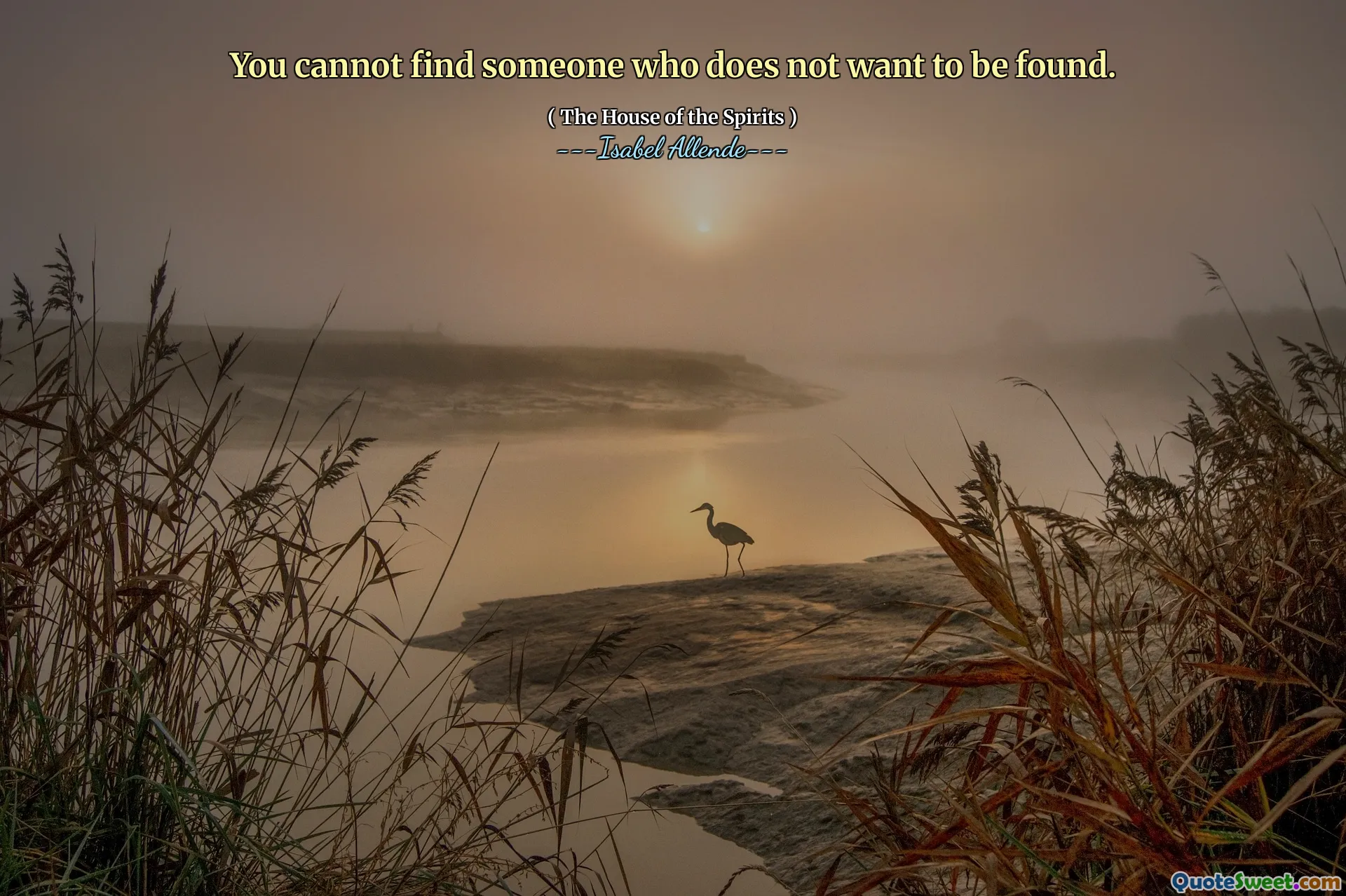
You cannot find someone who does not want to be found.
This quote underscores a fundamental truth about human relationships and personal agency. It suggests that the act of being sought out is mutually dependent on the willingness of an individual to be discovered. In our interconnected yet complex social fabric, the idea that one must desire connection to be truly found resonates deeply. It invites reflection on the importance of openness and vulnerability in forming bonds. Often, individuals might go unnoticed or overlooked simply because they have chosen to remain hidden, either out of fear, reservation, or a desire for solitude. Conversely, those who seek genuine connection must recognize and respect others' boundaries and desires; it is a mutual dance of willingness. The quote also hints at a subtle power dynamic—those who don't wish to be found maintain control over their privacy and autonomy. It raises questions about authenticity and effort in relationships: if someone does not want to be found, no matter how persistent the seeker might be, their choice remains sovereign. In a broader sense, this insight can apply to self-awareness as well; understanding oneself is often pivotal before seeking connections with others. It reminds us that sometimes, the key to understanding others might lie in accepting their boundaries and respecting their needs. Ultimately, the quote encourages patience, understanding, and respect in pursuits to connect—acknowledging that desire plays a crucial role in the possibility of being found and forming meaningful bonds.







